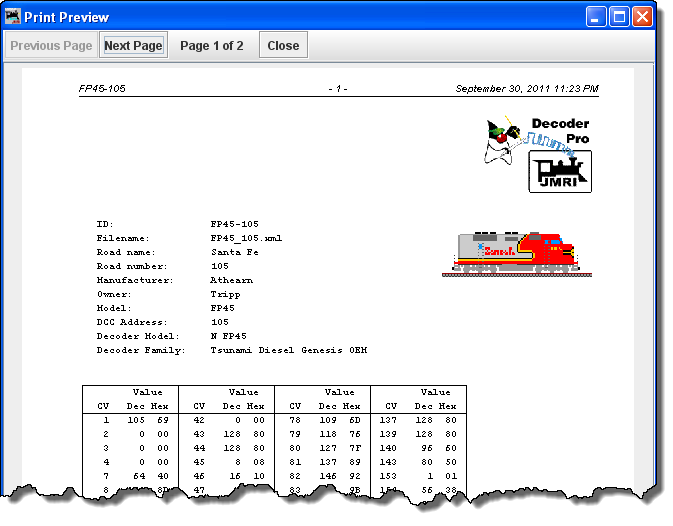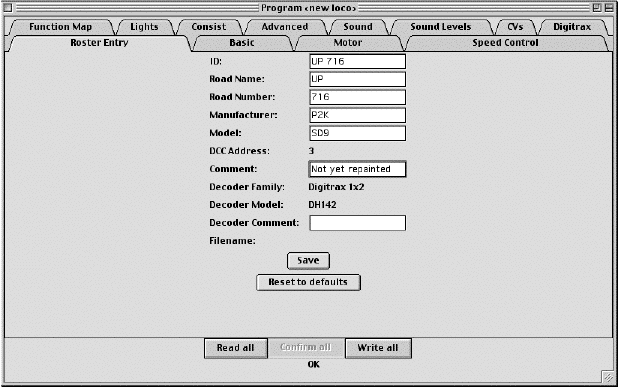

Prior to oral arguments on December 4, Judge Jeffrey S. īoth plaintiff and defendant further replied to responses on November 19 and 20. Responses to initial submissions were filed on November 13.

Jmri decoderpro series#
The summary judgment deals with a series of submissions presented by Jacobsen (plaintiff) and Katzer (defendant). Litigation history Initial actions īoth Jacobsen and Katzer moved for summary judgment and the district court ruled on the parties' Motions in December 2009. Jacobsen succeeded in obtaining the return of the domain name. In February 2004, Katzer registered the web domain however, DecoderPro is the trademarked name for a JMRI program. In addition to the patent claims, there was also a dispute over websites. Katzer subsequently countersued Jacobsen for $6 million for copyright infringement.
Jmri decoderpro software#
Jacobsen, however, alleged that Katzer's software utilizes textual files from the JMRI project, in violation of copyright and the DMCA. Katzer owns several patents that may apply to the model railroad industry, one of which he alleged the JMRI project may infringe. KAM produced and sold beginning in 1997 a commercial product for model trains, Train Tools, based on client-server software. ĭefendant Katzer is the owner of KAMIND Associates Inc., an Oregon company doing business under the name KAM Industries. JMRI's sales have qualified JMRI for membership as a business in the Model Railroad Industry Association (MRIA). JMRI also sells custom software directly to modelers and to dealers for resale. The software created by the JMRI community was distributed without charge on the Internet, subject to the terms of the Artistic License. The goal of the project was to create interfaces that would allow model trains to be controlled on a layout of model train tracks. Jacobsen, a model railroad hobbyist and a programmer, started the Java Model Railroad Interface (JMRI) Project along with other software developers in 2000, on the open-source incubation website. 3.4 Digital Millennium Copyright Act claims.
Jmri decoderpro license#
The case established the rule of law that terms and conditions of the Artistic License 1.0 are "enforceable copyright conditions".

The Jacobsen case is noteworthy in United States copyright law because Courts clarified the enforceability of licensing agreements on both open-source software and proprietary software.
Jmri decoderpro trial#
The case is noted for its contentiousness, with over 400 docket items (including motions, pleadings, as well as court orders) entered at the trial court, and two appeals to the Federal Circuit Court of Appeals. The case then settled on February 16, 2010. The Federal Circuit Court of Appeals reversed the trial judge holding an open source copyright claim was enforceable and awarded damages. The Ruling rendered Plaintiff's claim pointless since the Plaintiff could not recover money damages. In ruling on summary judgment motions the Northern District Judge ruled that liability for an open source copyright violation nevertheless did not support Plaintiff's claim for damages. The case addressed claims on copyright, patent invalidity, cybersquatting, and Digital Millennium Copyright Act issues arising from Jacobsen under an open source license developing control software for model trains. Katzer was a lawsuit between Robert Jacobsen ( plaintiff) and Matthew Katzer ( defendant), filed Main the United States District Court for the Northern District of California.


 0 kommentar(er)
0 kommentar(er)
